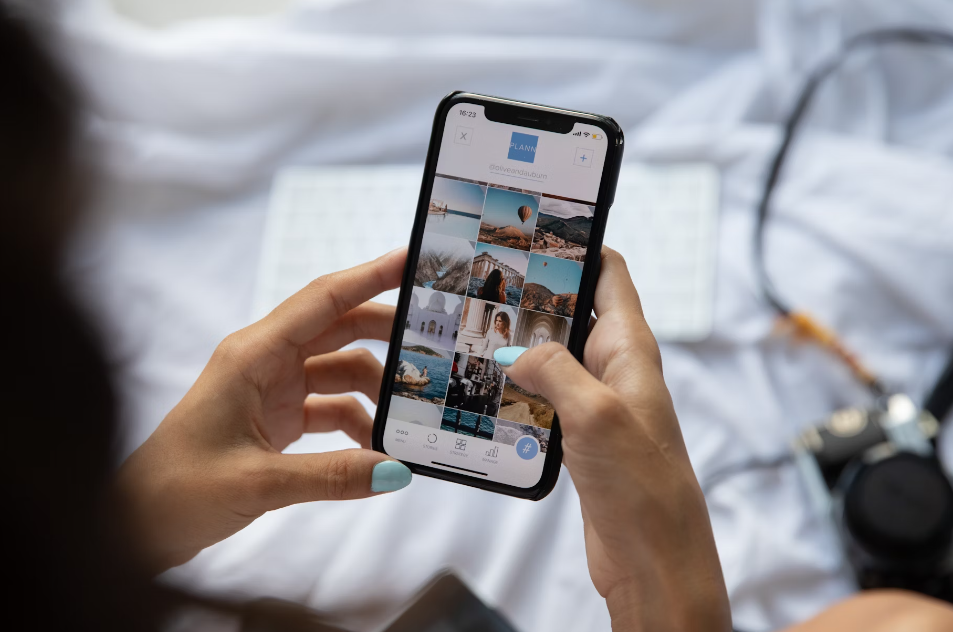A very thorough report about 5G connectivity, published recently, uncovered several myths about the new level of internet speed, stating that the current usage of 5G doesn’t determine the future demand. Some of us have been wondering whether or not we will need something beyond 4G, which is pretty much enough. Hence, we may not even care about a bigger number next to the “G”.
5G’s true potential lies in enabling innovations like smart factories and advanced medical procedures. To the average user, these might sound like far-off concepts, so there are even opinions, that 5G is not meant to be for everyone, making it specific to large operators and mainly to businesses. In fact, While 5G boasts impressive speed gains (studies suggest up to 10x faster than 4G in some cases), its availability is still patchy. And let’s not forget, those blazing speeds might not make a world of difference if you’re mainly browsing the web and checking social media.
In this article, we will cut through the noise, exploring the tangible benefits 5G delivers right now, the hurdles it faces, and what the future really holds for us, regular internet users worldwide.
Our Needs and 5G Do Not Align Perfectly
Streaming a favorite TV show, scrolling through social media, and playing online games have become a part of our daily entertainment dose. But many of these activities are perfectly enjoyable on 4G. So, would the benefits of the 5G connection really bring any value to the average user in terms of ensuring a better digital experience? Let’s answer this question by examining one of the most popular internet activities – online gaming.
A significant percentage of online gamers still primarily engage in genres like card games, puzzles, and casual mobile games. These do not always demand cutting-edge data speeds, given their light structure as platforms or software. Especially if we talk about card games, they are as simple as they could be: People who play online table games can confirm that they rarely encounter any glitches or internet speed-related issues. This is logical because card games and generally online casino offers usually do not contain heavy graphics. They are intuitive because of their simplicity.
With gaming and gambling being on the frontier of online activities, there are fewer chances that many gamers would benefit from a 5G connection. Moreover, many of them might not even notice the difference.
Will 5G Change How We Connect?
The excitement around 5G promises lightning-fast speed and uninterrupted connectivity, but beyond smoother video calls and quicker downloads, will it fundamentally alter the way we interact with the online world? 5G’s low latency (minimal delays, in other words) and high bandwidth could make virtual and augmented reality feel truly lifelike. Imagine attending a concert or exploring a museum virtually, with no lag or blurry visuals ruining the experience.
Doctors could guide intricate procedures from afar with real-time, high-definition feedback, while architects and engineers might walk through a shared virtual construction site despite being in different countries. 5G’s ability to support huge numbers of connected devices lays the groundwork for smart cities and smart homes on a grand scale.
Of course, these possibilities won’t materialize overnight and will require developers to harness 5G’s potential. The real question for the average user is whether these changes will eventually feel essential or just add a nice layer of convenience to our existing digital lives.
The Cost vs. Benefits
Without any doubt, upgrades are essential, and it is always exciting to have the latest and greatest tech. However, as forward-thinking consumers, we also need to compare the potential benefits of 5G with the price that has to be paid for those benefits. After all, every new technology comes with a higher price until it gets widely adopted. On top of this, some updates, including the 5G availability, require you to change your device. For instance, your iPhone X is not capable of connecting to the 5G. So, it is quite an investment to jump into the new speed of the internet.
Those shiny new devices: Depending on your carrier and region, fully tapping into 5G’s potential might mean ditching your current phone for a swanky new 5G-enabled model, as we already mentioned. And those can cost a pretty penny, although the analysis by Statista assumes that the prices of 5G smartphones can drop by 2026. That’s already a good sign, isn’t it?
The long-awaited upgrade: Let’s say you are up for the upgrade. Before you do, a reality check: is 5G even readily available where you live and work? Those incredible speeds are not so incredible if the signal is patchy or non-existent in your area. Checking your carrier’s coverage map is a must-do before making a big investment.
Now, to finalize this article, it will be valuable to touch on one of the most personal angles of this topic – the price tag. Before jumping into the upgrade pool, ask yourself: how will 5G honestly change how I use the internet right now? If you are usually just scrolling social media, checking email, and maybe streaming the occasional video, those extra dollars might not yet be justifiable. Even for those who play video games.
This is where a bit of honest self-reflection goes a long way. If 5G will truly be a game-changer for how you enjoy the online world, then making some investment in it can be beneficial. However, if your hard-earned money can make a bigger difference elsewhere, you might want to wait a little, maybe until 2026, when not only the prices of 5G smartphones will possibly decrease but also other devices that are coming to replace our smartphones, such as VR headsets, which are currently being sold at a huge price. However, by 2026, we might witness the introduction of a higher-speed connection since some producers already talk about 5.5G and devices that support the connection, expanding the geographical reach as well.




